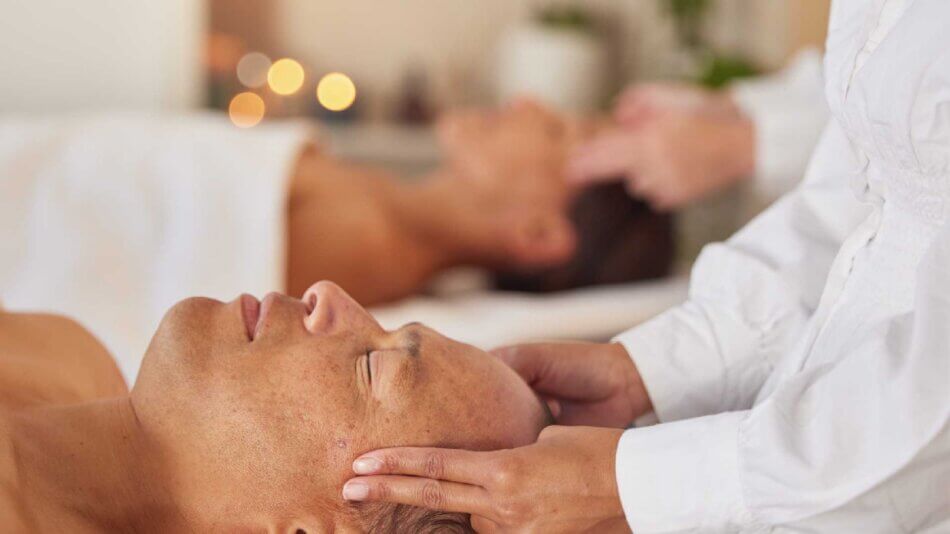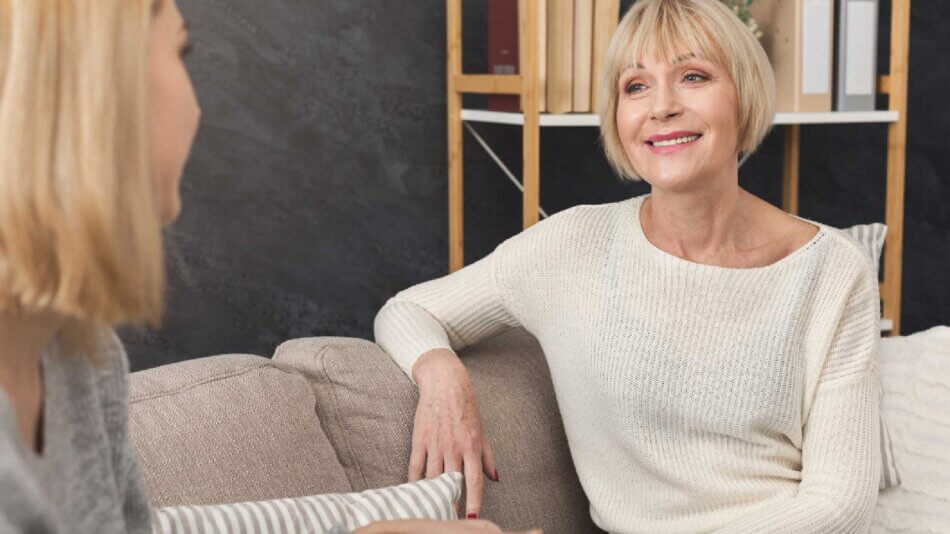Finding the right young adult residential and PHP programs can feel overwhelming as you move into independence while managing mental health challenges. These programs combine therapy, education, and transitional living to build your emotional resilience and life skills. Whether you need round-the-clock support or structured daytime care, understanding how residential treatment, partial hospitalization (PHP), and intensive outpatient (IOP) fit your goals will help you make an informed choice.
Referencing trusted models, you’ll learn how program structures, clinical approaches, and insurance options work together to support young adults like you. Let’s explore how you can unlock your potential with trusted young adult residential and PHP programs.
Understand program options
Residential treatment, PHP, and IOP each serve a distinct role in your care continuum. Knowing how they differ in setting, duration, and focus helps you select the right level of support.
| Program type | Setting | Typical duration | Key focus |
|---|---|---|---|
| Residential treatment | 24/7 supervised facility | 30–90 days | Intensive therapy and stabilization |
| Partial hospitalization (PHP) | Day program, return home | Several weeks | Structured daytime therapy |
| Intensive outpatient (IOP) | Evening or morning clinic | Weeks to months | Flexibility, skill-building, community |
Residential treatment programs
In residential treatment you live on-site with peers and staff who provide constant supervision in a home-like facility. You receive daily individual, group, and family therapy alongside recreational and experiential activities designed to build coping skills and emotional stability. Programs often remove you from triggers in your home environment, creating space to work on root causes of mental health or substance use issues.
External research shows Newport Institute offers mental health residential treatment specifically for young adults ages 18–35. Their integrated model delivers at least 30 hours of clinical and experiential therapy each week alongside 20 hours of academic or vocational study and mentorship [1].
Partial hospitalization programs
PHP allows you to attend intensive therapy during the day while returning to home or transitional housing in the evening. It’s a step-down from residential care or a step-up from standard outpatient therapy when you need more support. Typical PHP schedules run 3–5 days per week with 4–6 hours of structured treatment daily, combining individual counseling, group therapy, psychoeducation, and medical oversight.
Intensive outpatient programs
IOP provides a flexible option when you’re ready for greater independence but still need regular support. You may attend 2–4 group sessions per week for 2–4 hours each, supplemented by individual therapy and skills groups. IOP fits around school, work, or family commitments, helping you reinforce coping strategies in real-world settings.
Explore residential treatment
Residential treatment centers create a safe, immersive environment for deep healing. You’ll find therapeutic communities tailored to young adults, with credentialed staff, evidence-based interventions, and peer support.
Structured therapeutic environment
Living on-site means every aspect of your day contributes to recovery. Typical elements include:
- Daily group therapy for shared learning and accountability
- Individual sessions to address underlying issues
- Family therapy to improve communication and support
- Recreational activities to build social connection
- Life skills workshops for emotional regulation and independence
The Lindner Center of Hope emphasizes a Supportive, Structured, Safe, and Sophisticated approach in its young adult residential program, fostering stability while you work on emotional and behavioral challenges [2].
Clinical and experiential therapy
Evidence-based therapies like cognitive behavioral therapy (CBT), dialectical behavior therapy (DBT), motivational interviewing, and experiential groups help you develop coping skills and self-awareness. Many programs blend clinical sessions with adventure therapy, mindfulness, or art and music therapy to engage different learning styles.
Academic and vocational support
Maintaining your educational or career goals is crucial during treatment. Some centers, like Newport Institute, integrate academic tutoring or vocational skills training directly into the schedule. This approach not only keeps you on track academically but also builds executive functioning and motivation for post-treatment success.
Examine partial hospitalization
Partial hospitalization bridges the gap between full residential care and outpatient therapy. It offers structured, high-intensity support without overnight stays.
Daytime therapy structure
A typical PHP schedule may look like:
- Morning group therapy focused on emotion regulation
- Psychoeducational sessions on stress management and relapse prevention
- Lunch break with peer-led support check-ins
- Afternoon individual or family counseling
- Skills workshops in life planning or vocational readiness
According to Bold Steps New Hampshire, residential treatment spans 30, 60, or 90 days, while PHP serves as a cost-effective alternative without housing costs [3].
Planning your schedule
PHP programs often operate Monday through Friday, offering day-long treatment that lets you return home each evening. This structure is ideal if you have supportive housing arrangements or if maintaining family connections aids your recovery.
Stepping down care
After completing a PHP, many young adults transition to an IOP before moving to weekly outpatient sessions. This gradual step-down approach ensures you build independence while retaining access to peer support and clinical oversight.
If you’re researching young adult PHP and IOP programs, explore our resource on young adult PHP and IOP programs for detailed comparisons.
Combine therapy and education
Programs that integrate therapy with educational and vocational support help you tackle both mental health challenges and life goals simultaneously.
Evidence-based therapeutic approaches
Your treatment may include a mix of:
- Cognitive behavioral therapy (CBT) for challenging negative thought patterns
- Dialectical behavior therapy (DBT) for emotion regulation
- Motivational interviewing to strengthen commitment to change
- Psychoeducational groups covering topics like stress management
Skill-building workshops
Complement clinical sessions with hands-on training in areas such as:
- Time management and executive functioning
- Job readiness and vocational exploration
- Academic tutoring to keep you on track
This dual focus on therapy and education supports your holistic growth. See our guide on vocational and educational support in treatment for more.
Life skills and emotional regulation
Building daily living skills is key to long-term success. You’ll practice:
- Budgeting and financial planning
- Healthy communication and relationship building
- Coping strategies for anxiety and depression
Learn more about programs for life skills and emotional regulation for young adults.
Integrate transitional living
Transitional living provides a supportive bridge between treatment and full independence. You’ll reside in a shared house or apartment with peers, with on-site staff offering coaching and crisis support.
Supportive housing environment
In transitional housing you can:
- Practice daily routines like meal planning and chores
- Attend on-site therapy and life skills groups
- Receive case management to coordinate community resources
Many young adults benefit from this middle ground, fostering self-reliance under supervision.
Peer community benefits
Living alongside others on a similar journey builds camaraderie and mutual accountability. You’ll share experiences, encourage healthy habits, and form friendships that extend beyond treatment.
Aftercare planning
Transitional living often includes detailed aftercare, incorporating:
- Referrals to outpatient therapy or IOP
- Connections to local support groups
- Continued mentorship for vocational and educational goals
Explore our transitional housing and therapy for young adults resource for program options.
Access insurance coverage
Understanding payment options and insurance coverage ensures you can focus on recovery, not finances.
Provider accreditation
Look for programs accredited by bodies like The Joint Commission or CARF. Accreditation signals adherence to quality and safety standards.
Covered plans and verification
Many centers work with major providers such as Anthem, Kaiser Permanente, and Blue Cross Blue Shield. Newport Institute, for example, accepts these insurers and assists with benefits verification [1].
If you need guidance on coverage, review our young adult mental health program that accepts insurance page.
Cost comparisons
- Residential treatment includes room, board, and 24/7 care
- PHP reduces costs by eliminating overnight stays
- IOP is typically the most affordable, covering only therapy hours
Discuss payment plans, sliding scale options, and out-of-pocket estimates during your free consultation.
Choose your path
Selecting the right program involves matching your needs, preferences, and life circumstances with program features.
Assess personal needs
Ask yourself:
- Do you need constant supervision to prevent relapse?
- Can you handle daytime therapy and return home each evening?
- Will community support help you practice new skills?
Evaluate program features
Compare programs on factors like:
- Therapy modalities offered
- Staff credentials and experience
- On-site academic or vocational support
- Housing accommodations and peer demographics
Use our comprehensive young adult treatment and support guide to weigh options.
Tour and ask questions
Schedule visits or virtual tours to:
- Meet staff and fellow residents
- Review daily schedules and facility amenities
- Clarify insurance and payment details
- Understand aftercare planning
If you’re seeking stabilization before deeper work, consider a young adult recovery and stabilization program as your first step.
Maintain your progress
Recovery and growth continue long after you leave formal programs. Building a sustainable support network and ongoing skills practice keeps you on track.
Continued therapy options
Transition to weekly or biweekly outpatient therapy focusing on:
- Managing triggers and setbacks
- Refining coping strategies
- Addressing evolving life challenges
Check out our therapy for emotional growth and self-esteem resources for next-step support.
Community resources
Stay engaged with:
- Peer support groups
- Vocational training programs
- College counseling centers if you’re in school
Leverage resources like aftercare and supportive housing for young adults to maintain stability.
Ongoing skill development
Practice skills through:
- Workshops in stress management and resilience
- Coaching sessions for identity exploration
- Volunteer or part-time work to build routine
If you encounter new challenges, explore therapy for young adults with identity challenges or emotional regulation program for young adults.
Investing in your well-being is a lifelong journey. By understanding program options, blending therapy with education, and leveraging transitional housing and aftercare, you equip yourself to thrive as you move into adulthood. Whether you choose residential treatment, PHP, or IOP, these trusted young adult residential and PHP programs stand ready to support your growth, independence, and lasting recovery.










